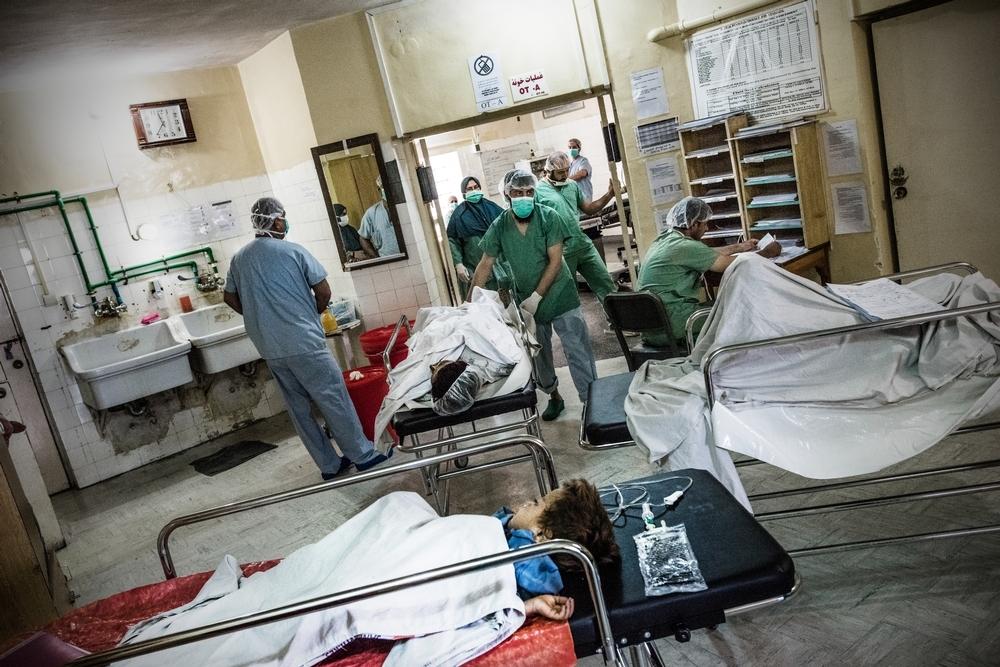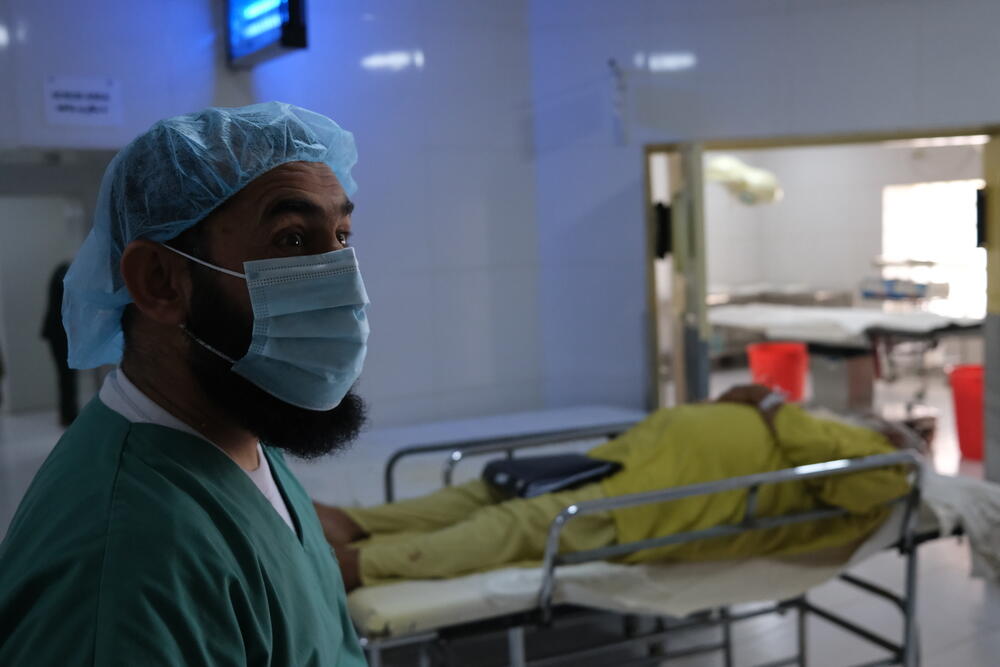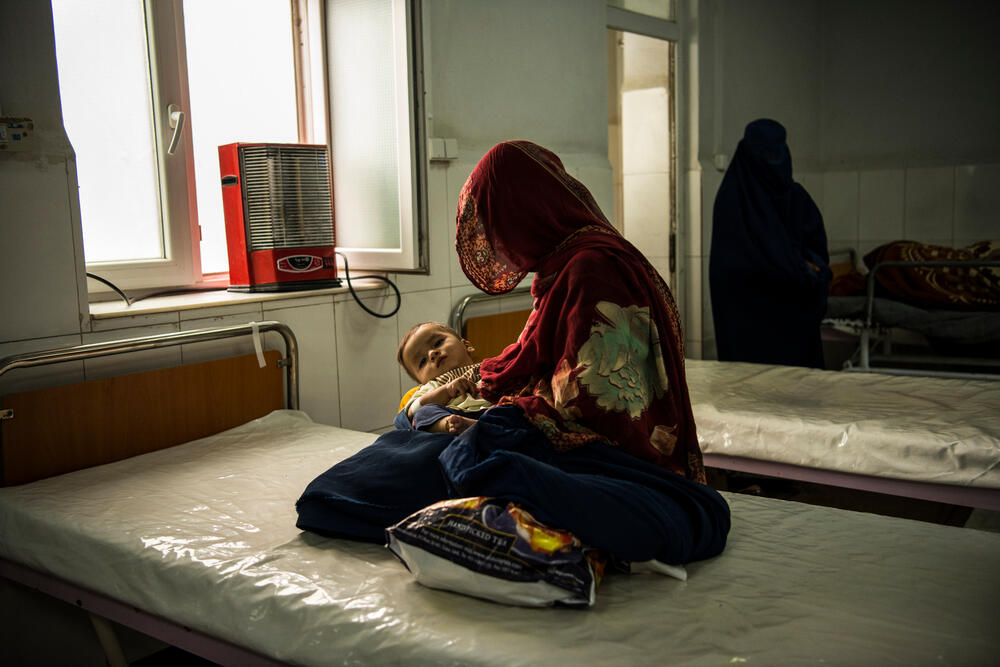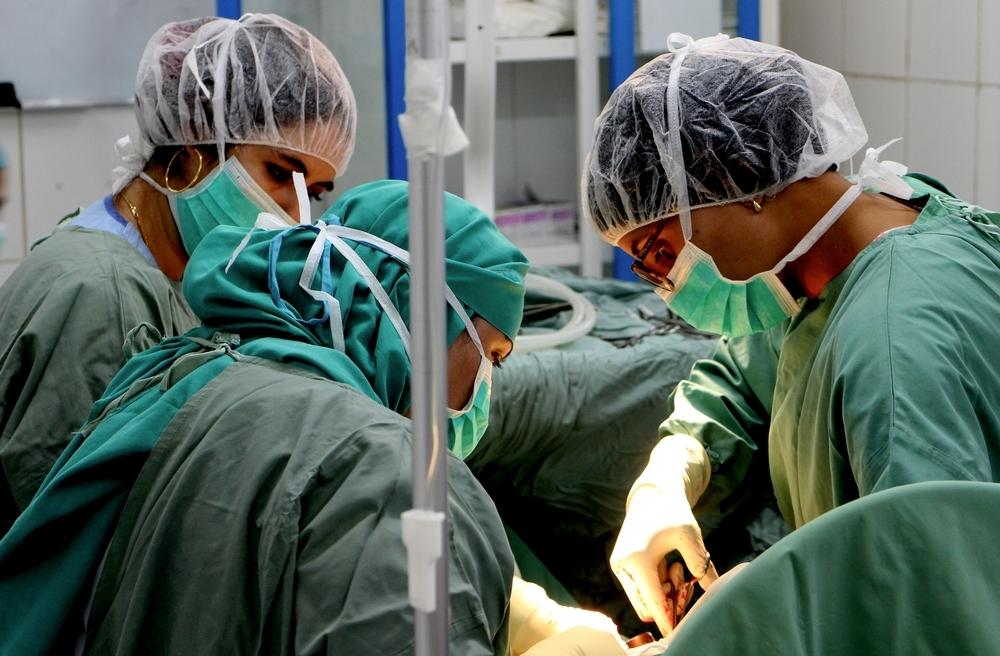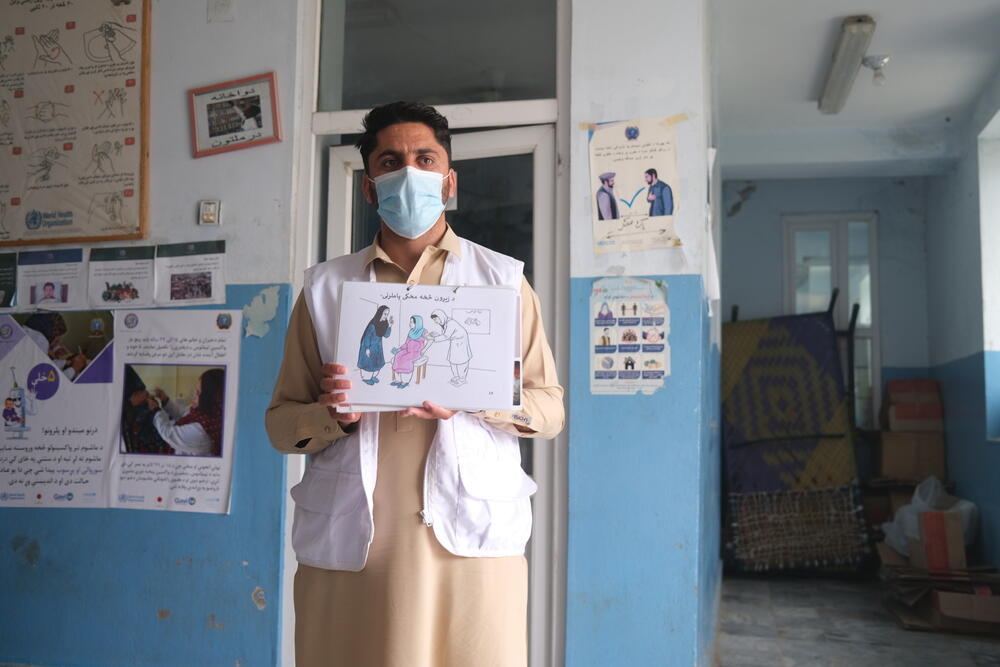Afghanistan: "Patient numbers have increased tremendously"
After the rapid transfer of power in Afghanistan there has been a big shift in the health context.
Médecins Sans Frontières / Doctors Without Borders (MSF) continues to run medical activities in five provinces.
Here, two medical staff working in Lashkar Gah and Khost describe the recent changes they have witnessed, and how they affect both patients and healthcare providers alike.
All images in this article were taken before the recent transfer of power in Afghanistan.
Lashkar Gah: “Our hospital is now full”
The situation in Lashkar Gah is now calm, but there remains some anxiety and uncertainty. People who delayed getting medical help while there was active fighting are now coming to the MSF-supported Boost provincial hospital.
As a result, over the past few days, the emergency room has been full, with many people suffering from respiratory and gastrointestinal problems, and trauma-related injuries as a result of the fighting and also road traffic accidents.
Between 15 and 21 August, over 3,600 patients received consultations in the emergency room and 415 were admitted to hospital.
A medic working at Boost hospital shares their experience.
“On 1 August I came to the Boost provincial hospital in Lashkar Gah and spent 13 days working there. The medical needs were very high; we received a lot of patients wounded in the fighting.

Help us prepare for the next emergency
But most of our regular patients (sick children, pregnant women, patients in need of more routine surgical care), which previously numbered around 500 a day, stayed away because access to the hospital was at times made impossible by the fighting.
Our staff had little rest; when patients came in we would wake up and run to the emergency room. We stayed in the hospital to treat our patients. It was very dangerous outside.
"Some patients are coming in critical conditions because they waited until the fighting had stopped"
After the fighting ended on 13 August, we stopped hearing the heavy sounds of airstrikes, rockets and mortars.
The roads in the city and in the surrounding districts are open and people are, once again, coming to the hospital. Patient numbers have increased tremendously.
Over the last week or so, we are receiving over 700 patients a day in our emergency room, sometimes more than 800.
On 21 August we treated 862 people in our emergency room, which I think is the most we’ve ever received. Some patients are coming in critical conditions because they waited until the fighting had stopped.
One reason we are seeing this huge number of patients at our hospital is, I think, because other local clinics are not able to meet the needs of the people.
We send around 200 less critical patients (known as green cases) to these clinics each day, but many come back reporting that the clinics don’t have the drugs they need or that they are closed due to a shortage of staff.
Our hospital is now full in terms of the number of patients we can admit. We have more than 300 patients already being treated in the hospital.
We already have more patients in our hospital than we have beds, so the more patients we receive in the emergency room, the greater the problem is finding space for them inside the hospital.
They are waiting a long time in the emergency room, while we try to find space. We have two patients to a bed in the paediatric ward, but we are still struggling to find room for everyone.
So we assess the severity of each patient’s condition because the more severe things are the more they need admitting.
Each day, between 80 and 100 of the people we assess have severe enough conditions that they must be treated as inpatients in the hospital.
This forces us to discharge other patients to make room for them. This is one of the big challenges at the moment.
I don’t know how we can solve it in the long term, but for now we are decreasing the length of stay and discharge them with the medicine they need, unless they are in a very critical state.
Our intensive care unit is also full. All the districts are now open so that’s another reason we are receiving so many patients, as they are coming from outside the city."
Khost: “To increase access to healthcare we widened our admission criteria”
In Khost, MSF runs a maternity hospital and supports eight comprehensive health centres in rural areas. Between 15 and 22 August, the hospital admitted 402 pregnant women and delivered 338 newborns. Thirty-three babies were treated in the hospital’s neonatal ward.
A medic working in the hospital shares their experience.
"People are facing so much uncertainty, especially pregnant women"
“Although the city of Khost didn’t experience the heavy fighting seen in other places, we are facing tough times.
Markets, local transport systems and most private clinics are closed. People’s access to healthcare is now very limited.
A single birth in a private clinic can cost 3 to 5 thousand Afghani [35 to 60 USD], which is adding extra pressure on the families.
People are facing so much uncertainty, especially pregnant women. They try to save money and, since MSF offers its services for free, many pregnant women are coming to the MSF maternity hospital in Khost.
Previously MSF’s maternity hospital in Khost had focused on providing medical care to pregnant women who were facing complications. However, to increase access to healthcare for the community, we widened our admission criteria and now give medical care to any pregnant woman to help them deliver their baby.
Local organisations we work with are telling us about the difficulty in accessing healthcare facing remote communities. The transport system isn’t fully functioning and we are worried about breaks in the supply chains for essential, life-saving medications.
In spite of these challenges, MSF is committed to continuing our medical activities and to meeting the health needs of mothers and children in conflict-affected communities.”
MSF and the crisis in Afghanistan
In May 2021, there was a significant surge in violence, with fierce clashes between Afghan forces and the Islamic Emirate of Afghanistan (IEA, also known as the Taliban) claiming thousands of lives and forcing many more people from their homes.
By mid-August, the IEA entered the capital city of Kabul and Afghanistan's President Ashraf Ghani fled the country. Throughout this time, MSF teams have continued to provide life-saving medical care to people caught in the chaos.
